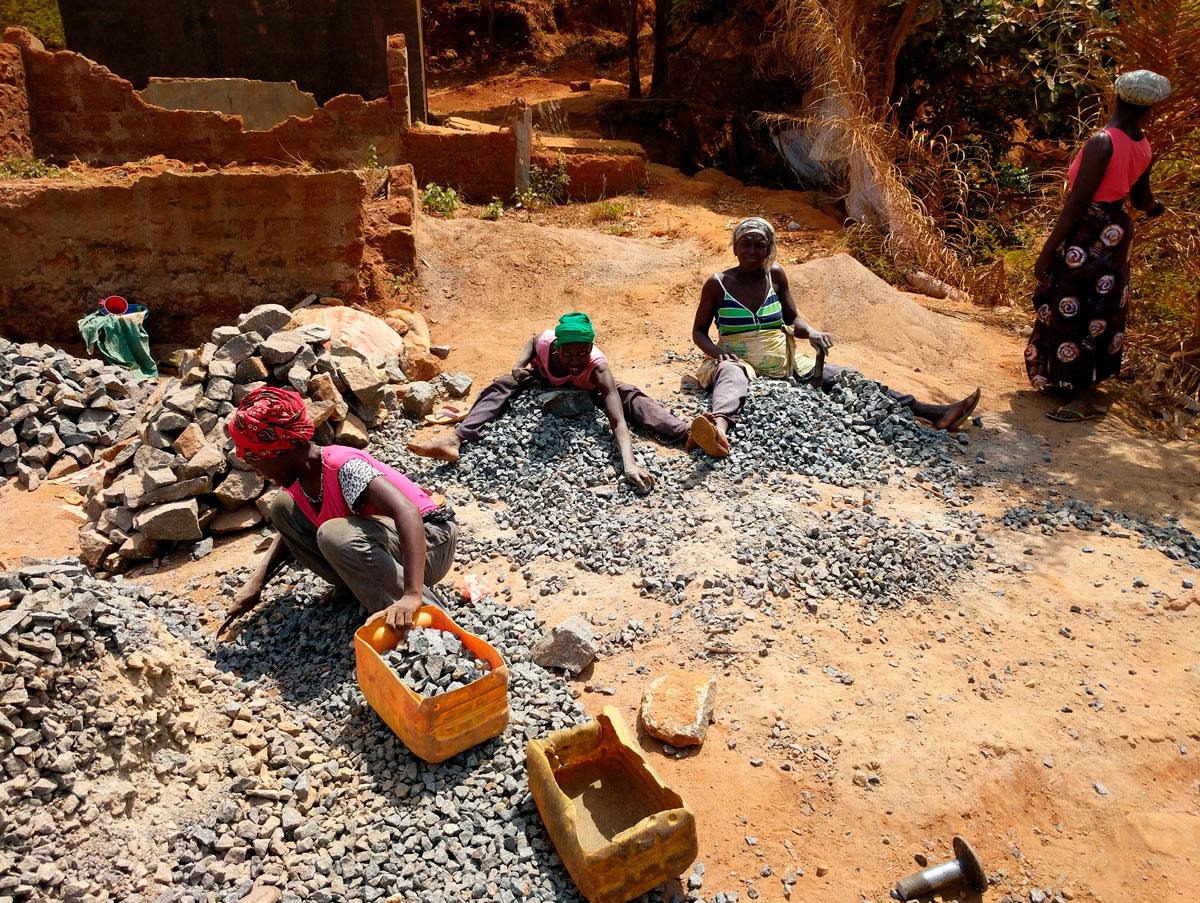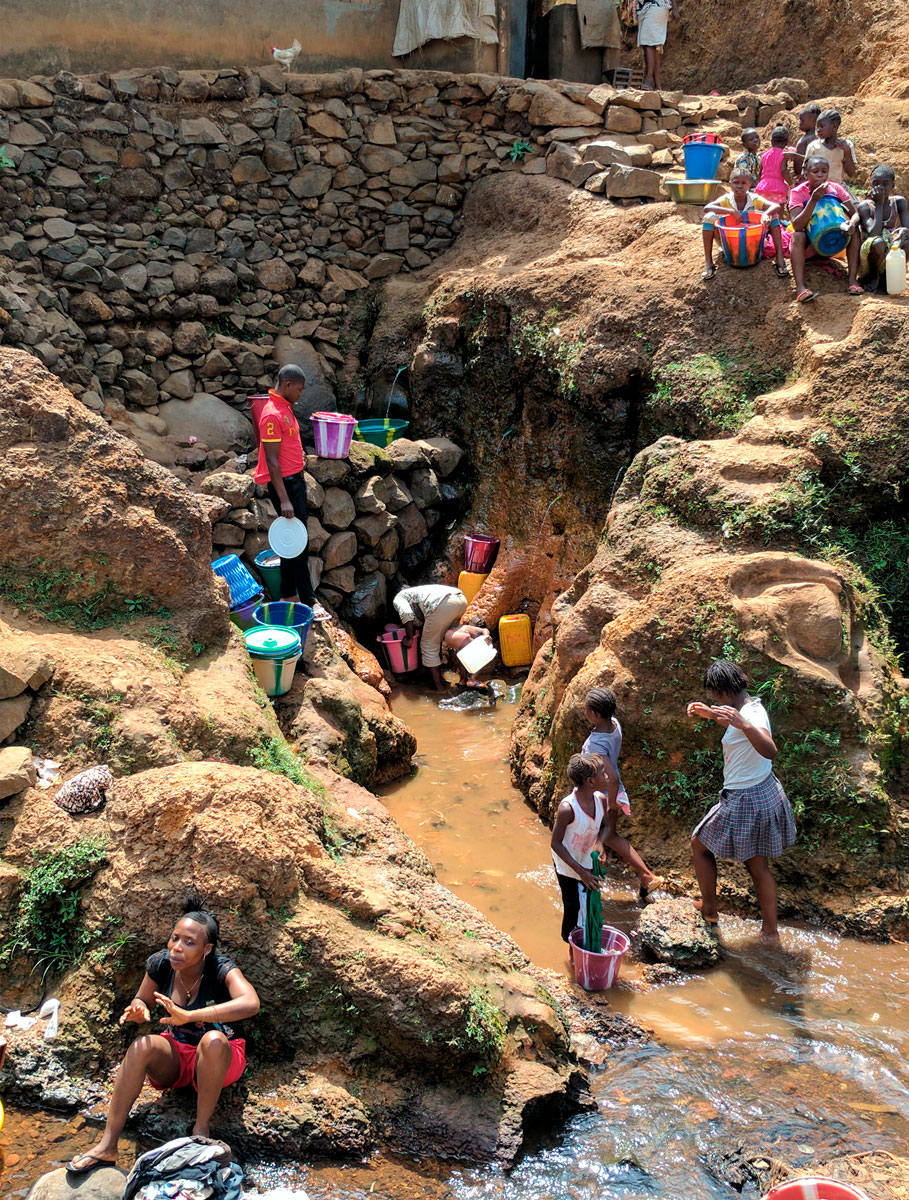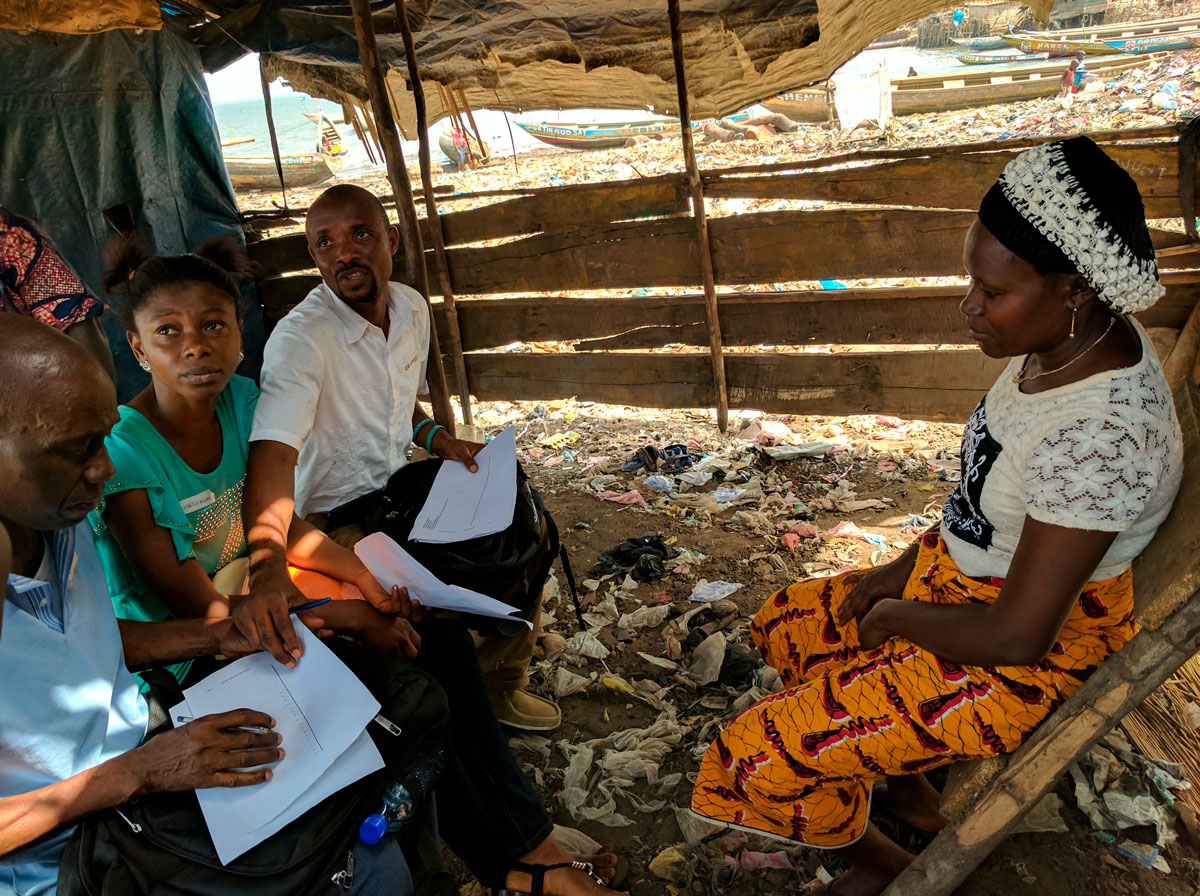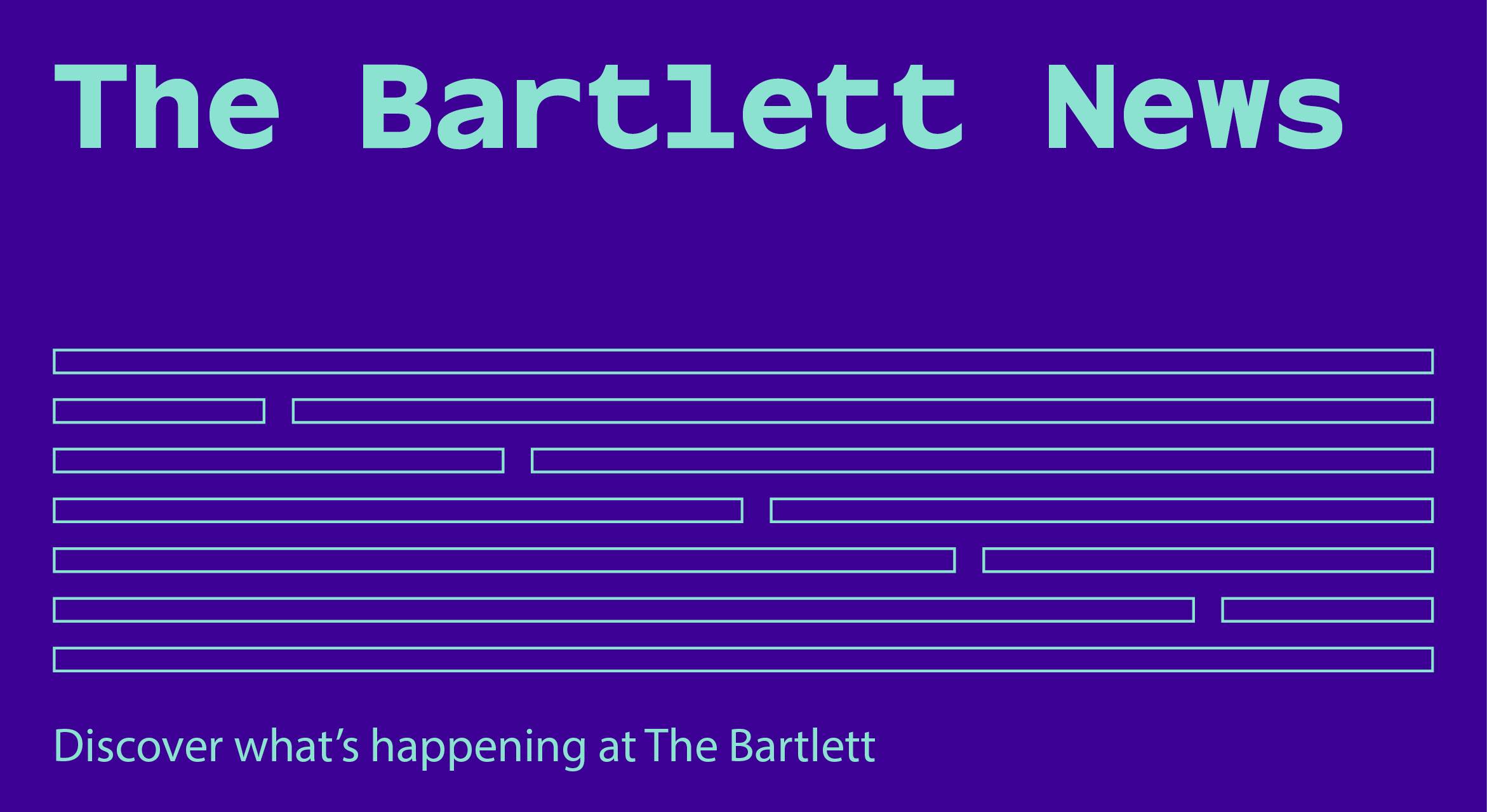Since the 1980s, the Gender Policy and Planning Programme at The Bartlett has been on a mission to further the research and theory for achieving gender parity.

Women working as stone breakers in the quarrying sector in Moyiba, an informal settlement in Freetown. Each of the images on this page formed part of a research project on ‘Gender and Informal Livelihoods’ conducted by the DPU and the Sierra Leone Urban Research Centre (SLURC), funded by Comic Relief and the UK DFID. Credit: Julian Walker
Starting from the mid-1980s, however, dissatisfaction with the marginalisation of women’s subordination as a concern, led to increasing calls for ‘gender mainstreaming’ – addressing gender inequality through mainstream development interventions (such as housing, health or economic development programming) rather than through a small and under-resourced ‘women’s sector’.
As part of this approach, colleagues at The Bartlett Development Planning Unit (DPU), Caroline Moser and Caren Levy, began developing the Moser / DPU Gender Planning Framework. This set out to broaden the analytical focus from ‘women’ to ‘gender’, to draw attention to the fact that examining women in isolation was not enough to achieve equality. If the status of females was to be improved, the focus should instead be on gender – that is, on the socially constructed roles of, and relationships between, women and men.
In addition, the framework sought to provide the analytical tools to disaggregate the different gender roles that women and men undertake, highlighting the different patterns of their involvement in production (for example, producing goods for sale), reproduction (looking after children or the home), community affairs (organising collectively in the community), and political participation, as well as their unequal access to and control over resources.
Practical measures

Residents collecting water from a community managed spring in Moyiba, Freetown. The management and use of water is governed by gender norms and clearly illustrates the gender division of labour. Credit: Julian Walker
The Web responded to Levy’s experience that it was difficult to move from rhetoric to practice in gender mainstreaming, without analysing and addressing key sites of power and resistance to gender equality in mainstream development institutions and in civil society.
More recently, the GPPP has continued to work with a range of development agencies, government institutions and civil society organisations globally towards integrating its ideas into the wider policy landscape. This has been achieved by looking at how a gender perspective re-orients our understanding of other aspects of development, including urban planning and the environment, and also how to engage practically with the intersection of gender with other axes of inequality – along lines such as race, class or disability.
Re-emphasising radical roots

A member of the Sierra Leone Federation of the Urban Poor interviews a fish trader in the Freetown community of Portee-Rokupa. Credit: Julian Walker
In response, the GPPP aims to re-emphasise the fundamental radicalism of the original framework for gender planning, and the notion implicit in it that simply moving women into the mainstream is not enough without altering the context within which they operate. In other words, the solution to co-optation is not to drop the idea of gender planning, but to re-politicise it and confront the clusters of power that are preventing change.
As Levy wrote in 2009, the challenge is to construct a “development planning which incorporates gender justice along with justice for all identity groups within a wider ‘project’ for progressive and transformative social change”.
 Close
Close




